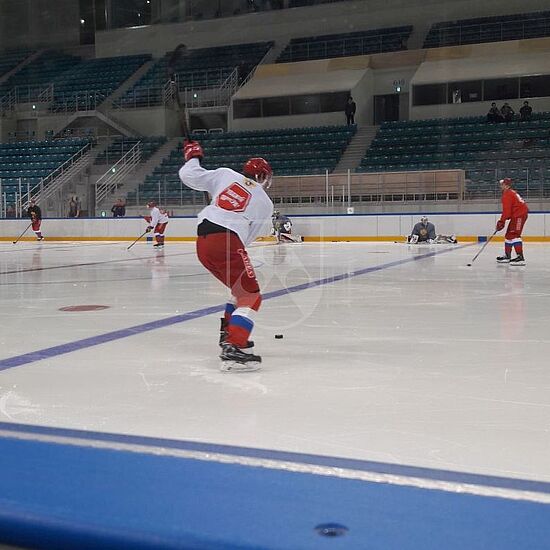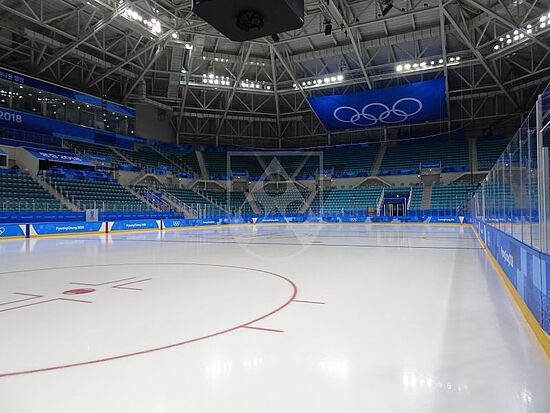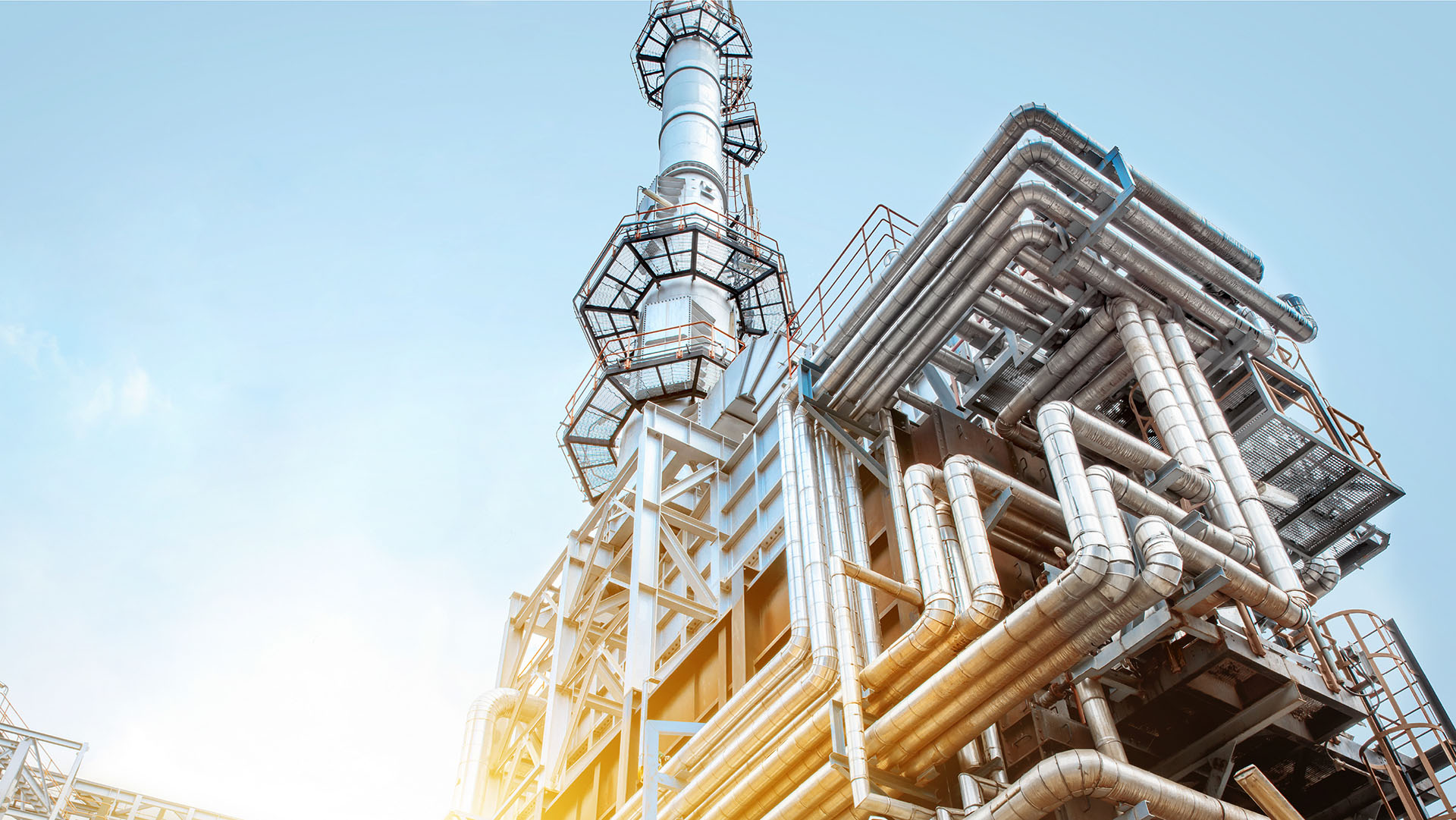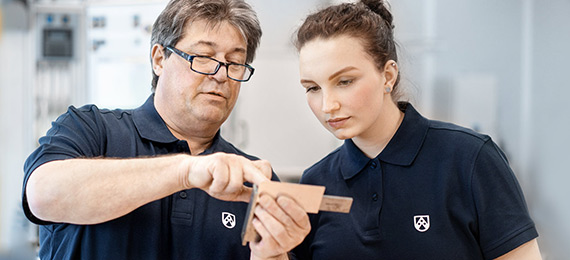You've got your eyes on the goal. Just a few more feet. The puck is gliding surely along the ice. Suddenly, one of your opponents appears. The only way around them is along the boards. You aim, shoot, and the puck flies ... right past the goal. Your puck can reach speeds of over 160 km/h in these situations. An enormous amount of force is transferred in this process. The boards need to be able to stand up to these high impact forces. And this is only one of the demands placed on the material used for boards.
Hockey is a contact sport that involves a great deal of dynamics and use of physical strength. If players really crash into the boards, the material needs to be reliable and safe. In hockey, boards not only cordon off the playing area, teams also purposefully incorporate them into strategic moves to play the puck in the right direction, using the desired rebound angle, or to push back opponents. With their body weight and gear, players can easily weigh over 100 kg, and when they are bodychecked, they crash into the boards at top speeds of up to 50 km/h. In these instances as well, the material needs to be not only extremely robust but also elastic to minimize the danger of injury.
Speed, force, and precision – as well as tactical skill – play a decisive role in success during hockey games. During the Olympic Games in particular, the best athletes and teams in the world compete, and this means the playing level is high. The equipment also needs to correspond to this level. After all, the constant collisions and impacts place extreme demands on the materials used.
The Finnish ice sports equipment manufacturer ICEPRO Oy, Ylivieska, furnished the hockey arenas for the 2018 Winter Olympic Games in South Korea with board systems and players' benches. It used Polystone® products from Röchling for this project. The cladding for the boards was made of the material Polystone® G (PE-HD). The material convinces with its high resistance to impact and wear, as well as its good elastic properties.
The protective strips mounted along the bottom edge of the boards often have contact with the puck and ice skate blades, which is why they need to be especially resistant to scratches. Because of this Polystone® D (PE-HMW) was selected for these board elements, which are subject to greater stress. The handrail of the boards is, in turn, created with an ergonomic profile made of Polystone® M (PE-UHMW).
Contact
We would be happy to inform you about our materials for boards systems and synthetic floors for ice sports in greater detail.
➜Inquiry: Ice skating material
You can find more information on the industrial page for skating rinks.







